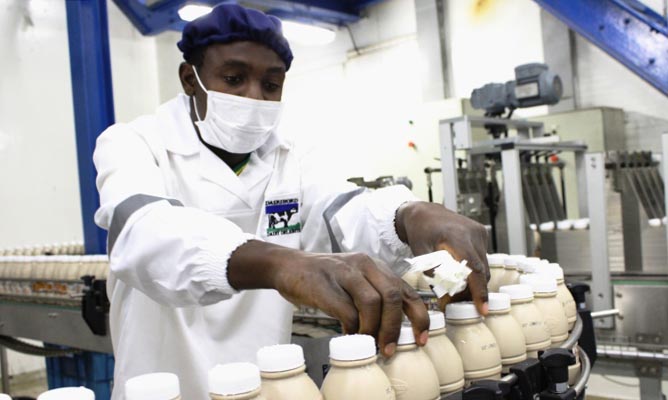
BY MISHMA CHAKANYUKA/ RUTENDO MATANHIKE
Dairibord Zimbabwe Holdings says it has closed more than half of its plants across the country due to low milk volumes.
The company had seven plants operating in Zimbabwe, but has closed down four of them.
Chief executive, Anthony Mandiwanza, told members of the Parliamentary Portfolio Committee on Industry and Commerce yesterday that there was need to reboot milk production across the country which have declined over the years.
“At peak the nation had a dairy herd of 192 000 which produced over 150 million litres annually. Today, we are producing about 70 million litres from a dairy herd that is slightly above 32 000,” he said.
Mandiwanza said government should assist cattle farmers with finance and procurement of herds to boost milk production, utilising the co-operatives already established by the then Dairy Marketing Board (DMB).
“DMB established 10 co-operatives throughout the country and those co-operatives are still there, underutilised. What is now needed is to harness and provide them with the kind of back-up that is needed to make sure they go back into milk production,” he said.
“The symbiosis between private sector and government is of paramount importance in order to foster milk production,”
- Chamisa under fire over US$120K donation
- Mavhunga puts DeMbare into Chibuku quarterfinals
- Pension funds bet on Cabora Bassa oilfields
- Councils defy govt fire tender directive
Keep Reading
Mandiwanza said the company was unable to fund the production of milk without developmental intervention because the burden would strain its finances.
“That is an initiative that now requires intervention from a developmental perspective, you can’t leave it to the private sector to play on its own,” he said.
He added that the company had put its heifer importation programme on hold as the cost of importing heifers has increased from about US$1 200 to about US$2 300 per beast.







